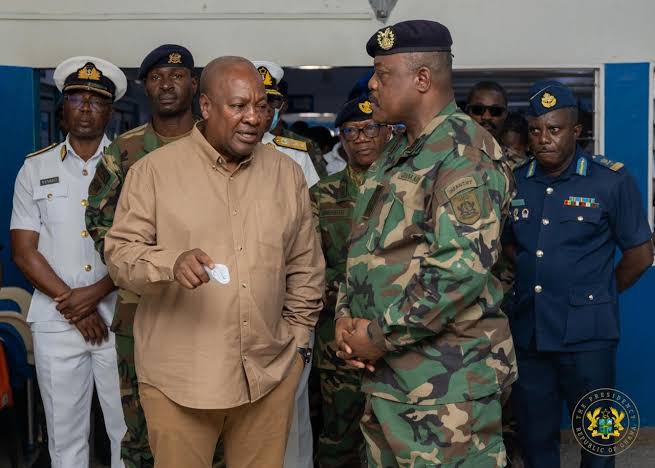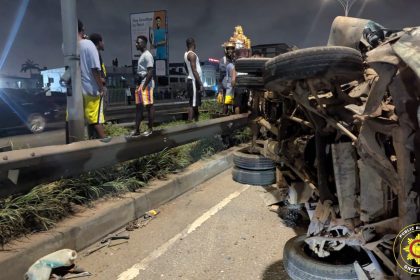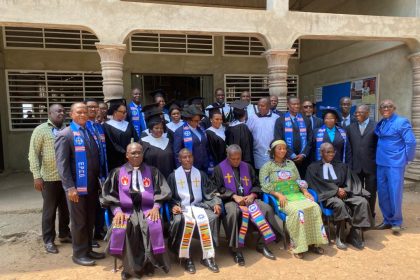President John Mahama has expressed deep sadness and grief over the deadly stampede at the Ghana Armed Forces recruitment exercise in Accra and has directed security agencies to immediately overhaul safety measures before the process resumes.
After visiting survivors at the 37 Military Hospital, the President described the event as “a heartbreaking accident” and confirmed that six young women died and at least 12 others were critically injured when thousands of prospective army recruits were caught in a crush at the El-Wak Sports Stadium on Wednesday morning.
President Mahama said the loss of young lives had shaken the nation and emphasised that the tragedy must prompt urgent reforms in how large-scale recruitment exercises are conducted.
He instructed the Defence Ministry and the Armed Forces to suspend the Greater Accra phase of the exercise while a comprehensive safety review is undertaken, stressing that “the wellbeing of our young people must be paramount.”
He also assured families that the government would support them fully and cover all medical costs for the injured.
The President explained that the victims had reported as early as dawn in hopes of securing places in the military, a reflection of the intense demand for limited opportunities amid widespread youth unemployment.
While acknowledging that the nationwide recruitment drive was intended to make the process more open and equitable, he admitted that crowd management had not matched the scale of interest.
President Mahama also disclosed that a similar, though non-fatal, crush had occurred at the Kumasi screening centre days earlier.
His remarks have come at a time of mounting anger and calls for accountability. In Parliament, Speaker Alban Bagbin urged a non-partisan response and warned that without decisive reforms, “future incidents could be worse.”
He also renewed his call for the appointment of a substantive Defence Minister, arguing that the acting minister’s divided responsibilities leave gaps in oversight at a critical time.
Rev. John Ntim Fordjour, Ranking Member on the Defence and Interior Committee, went further, calling for the entire nationwide recruitment exercise to be halted. He argued that the tragedy had exposed severe weaknesses in planning, crowd control, communication and emergency readiness.
Rev. Fordjour is pushing for decentralised screening centres, staggered reporting schedules and tighter coordination between the military, police and health services before any resumption.
Civil society organisations have echoed these demands, insisting that organisers of the exercise must be held accountable. A group known as the Gallant Cadres has called for administrative sanctions and, if necessary, prosecutions for negligence.
“Ghana cannot continue normalising avoidable deaths,” the group warned, urging the Armed Forces to publish an independent report on what happened at El-Wak.
The National Youth Wing of the New Patriotic Party has also weighed in, describing the stampede as “a preventable tragedy” and demanding a transparent investigation.
The group has questioned whether proper risk assessments were done, why a single venue was used despite huge turnout projections, and what contingency plans existed for medical or security emergencies.
Eyewitnesses and some of the would-be recruits have offered emotional accounts of the chaos. Some described being trapped in a tide of bodies, unable to move or breathe.
Others recalled seeing applicants scale fences in attempts to escape the crush. One local Assemblyman criticised the military for failing to implement even basic crowd-control measures, saying “young lives were lost because the system failed them.”
The public reaction online has been intense. Videos and images from the stadium — abandoned shoes, bags, scattered documents and scenes of resuscitation efforts — have drawn an outpouring of grief and anger.
Many Ghanaians expressed sorrow that all six of the deceased were young women, with several noting that the tragedy highlights deeper issues of unemployment and the high stakes young people attach to public-service opportunities. The phrase “they only wanted jobs” has trended widely.
Amid the grief, many voices are urging structural change. MPs and security experts alike have proposed modernising the recruitment process through digital pre-screening, appointment-based reporting and smaller, decentralised verification centres.
Analysts say such reforms would prevent thousands from converging at one venue and reduce the risk of deadly surges.
For now, with investigators gathering evidence, families are identifying the remains of loved ones, and the nation continues to mourn.
President Mahama has promised that the review will be thorough and that future recruitment will only resumej under safer, restructured conditions.






